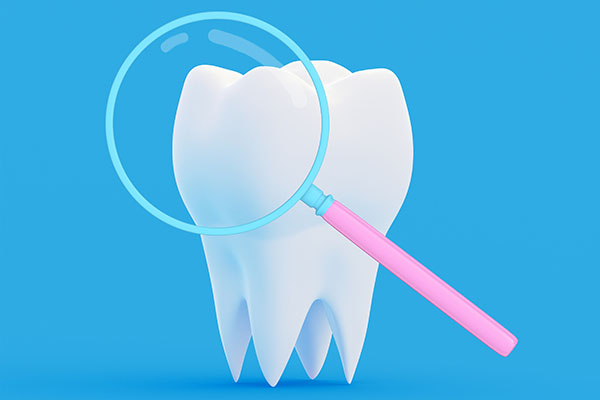How to Care for Dental Implants

Dental implants enable you to get as close as you can get to replacing your natural teeth roots, both in terms of function and health benefits. Dental implants require regular care like your natural teeth, which is the only way to ensure that your implant-supported teeth can last a lifetime. Read on to learn about dental implants, their oral health benefits, and how to take care of them.
The anatomy of dental implants
A dental implant mimics the root of a natural tooth in more than one way. For one thing, the implant sits in the jawbone, just like a natural tooth root. The implant also stimulates the jaw as the person bites down or chews. Dental implants are solid anchors and can keep prosthetic teeth in place, which enables them to function like actual teeth.
Dental implants take the form of biocompatible screws that integrate with bone tissue in the jaw. The top end of a dental implant connects to a connector or abutment. This connector links the implant and the artificial teeth that it anchors. The lower end of the abutment sits below the gums, right next to the jawbone. The upper end sits above the gum line, where it connects to a crown or denture.
Placing dental implants is a process that takes several months, from start to finish. This suggests a sizable investment in terms of time, energy, and finances. For this reason, a person with dental implants should also invest in keeping their implants healthy and functional. Here are a few simple ways to keep dental implants in good condition.
1. Oral hygiene
Good oral hygiene goes a long way toward keeping real and artificial teeth in good condition. Brushing in the morning and before bedtime prevents plaque buildup. Flossing complements brushing by getting into places that a toothbrush cannot.
Thorough, consistent cleaning prevents bacterial attacks on the gum tissue around the implant and abutment. Good oral hygiene prevents the type of implant failure that can happen when a person develops a gum infection (peri-implantitis) near the implant.
People who have dental implants should aim to brush their teeth at least two times daily. One of these instances should be right before going to bed because that is the most vulnerable period for the mouth. Saliva helps minimize the damage caused by bacteria and the acids that they excrete by washing them away throughout the day. Saliva production slows down during sleep, making teeth and gums more vulnerable to tooth decay and gum disease.
Anti-bacterial mouthwash also helps prevent plaque and tartar buildup at the base of dental implants. These rinses clean the areas that flossing and brushing miss, and they remineralize teeth.
2. Healthy diet
A second way to maintain dental implants is with a nutrient-rich diet low in sugar and refined carbohydrates. This diet can starve harmful mouth bacteria of ready fuel for their destructive projects. Nutrients also provide the gums and jawbone the material that they need to maintain a solid structure. Minerals like fluoride fight bacteria and strengthen the enamel on the remaining natural teeth.
A nutritious diet also includes foods that contain essential nutrients for teeth, like calcium and phosphorus. Green leafy vegetables and dairy products are excellent sources of such minerals. Hard and crunchy foods that can damage teeth structures when bitten into should be avoided as much as possible. Any damage to enamel leaves teeth vulnerable to decay because the enamel serves as a barrier that protects the more delicate inner layers of teeth from acids made by oral bacteria.
3. Protection from teeth grinding
The constant shearing pressure from teeth grinding can cause an implant to fail. Dentists will recommend a nightguard to protect the implants and remaining teeth during sleep.
4. Regular dental checks
Dental implants are an investment that require regular care and monitoring. Routine dental checks enable the dentist to keep tabs on the implants and the support structures that they rely on. These regular dental visits serve several purposes:
- They are an early warning system that enables the dentist to catch and correct problems before they cause implant failure
- Routine checks involve professional cleaning that removes plaque and tartar buildup
- They are opportunities for the dentist to guide patients on how to take care of their implants
Dentists also use routine visits to point out different ways that patients can improve their oral habits.
5. Dropping bad habits
Smoking, excessive drinking, and a poor diet are just three ways to put dental implants at risk. Dropping these kinds of habits can prevent implant damage and failure.
Keep your smile healthy with help from our dentist
We offer a full range of services that touch on the fitting and maintenance of dental implants. Get in touch with our practice if you are in Johns Creek to find out more. Our dentist will answer your questions and offer the personalized dental care that you need.
Request an appointment here: https://www.johnscreekteeth.com or call Johns Creek Dentistry at (770) 623-1427 for an appointment in our Johns Creek office.
Check out what others are saying about our dental services on Yelp: Dental Implants in Johns Creek, GA.
Recent Posts
Spending money on dental implants is not extravagance or luxury. It is a practical decision. These restorations offer artificial roots to stimulate the jawbone. This prevents jawbone loss. Implants do more for you to smile about. If you want to know why you should smile endlessly with dental implants, here are the details.This has always…
Dental implants are a popular choice for patients wanting to replace missing teeth. Formerly, partial dentures and dental bridges were the go-to treatments. However, implants have many advantages. They are more stable than removable dentures and typically last longer than bridges. Using this prosthesis, a dentist can replace a single missing tooth without disturbing any…
A bone grafting procedure involves the restoration of lost jawbone, which is necessary before dental implant placement if the patient does not have enough healthy jawbone to support the implant long-term. This review discusses dental bone grafting for the purpose of restoring lost jawbone ahead of dental implant placement.Not every dental implants patient requires bone…
Dental implants are easy to care for at home and with regular visits with your general dentist. You can ensure your dental implants last for as long as possible by understanding useful tips for caring for your new teeth and periodontal health at home through good oral care and smart dietary and lifestyle choices. Dental implants…


